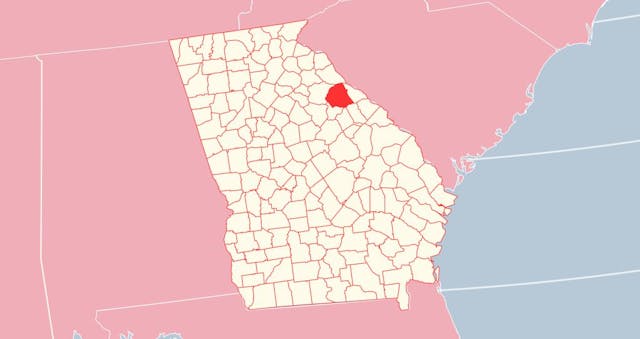Rehabs in Wilkes
Wilkes County was formed on February 5, 1777, in Georgia, US. It is a small province with three communities. They are Rayle, Tignall, and Washington, which is the county seat. The total area is 474 sq mi (1,230 km2). In 2021, the population was 9,462, registering a decrease of -1.08% from 2020.
This region is not notable for its healthcare system. However, substance use is not prevalent in this region. Moreover, there is even a shortage of Wilkes County rehabs. It only registered 20% of alcohol-driving deaths in 2019. The number of deaths from opioid overdoses was 11 people.
Drug and Alcohol Evaluation
Evaluation comes first in the curing process most of the time. Specialists find the initial state of the client via the interview. It determines whether or not visitors need detox and residential programs. Depending on the outcomes, further tests will be carried out. Those show the level of drugs and alcohol in patients.
Based on the results, doctors can show patients a specific course of treatment.
Rehab Programs in Wilkes County
Despite the lack of rehabilitation centers in Wilkes County, chemicals are not very common in this province. However, people struggle to prevent the risk that leads to addiction.
Detox
If specialists prescribe a person detox, they must go through it in a hospital condition. People often don't realize that drug detox can be complicated and life-threatening. Therefore, they try to go through that process on their own. However, this leads to a worse situation.
Unlike home detox, medical one provides round-the-clock supervision. In addition, doctors provide appropriate help in any emergency. Withdrawing chemicals becomes safe and easy thanks to this well-designed method.
Inpatient (IP)
If someone is struggling with severe addiction, they should attend the inpatient level. It offers a wide range of therapeutic healing methods. Experts with high experience provide round-the-clock monitoring. The recovery should not be less than 30 days. In essence, it may extend up to 60-90 days.
Last but not least, addiction specialists teach clients essential strategies. Those help them avoid future relapses and better manage their stress. It motivates them to maintain soberness for a more extended period.
Outpatient (OP)
OP is for people who have completed the Inpatient option. It is helpful for clients with mild abuse symptoms. That is, the outpatient level is minimal care. Within the framework of this program, people spend the night at home and continue to work and study. Members attend counseling services for two days per week.
Intensive Outpatient (IOP)
By choosing IOP, members attend healing courses for 9-20 hours each week. Qualified medical staff, including physicians, mental health counselors, and therapists, work with them. Clients participate in various IOP services. Those take place for short periods during the day, evenings, and weekends.
Partial Hospitalization (PHP)
PHP focuses on the most severe cases than other outpatient settings. Individuals who can control themselves to some extent can participate here. As a result, the healing plan consists of various approaches. These solutions are specific and focused on achieving a particular objective.
Payment Options Without Insurance
There are a lot of available payment methods if someone does not have private insurance. Clinics may offer different payment methods depending on the individual's eligibility plan.
All clinics, without exception, accept cash and credit cards. However, to make treatment available to everyone, institutions offer financial assistance. Also, they accept other payment methods such as Grands, Medicare, sliding scales, and so on.
Rehab Programs for Teens
Parents cannot solve teens’ abuse problems by forcing them into rehab. In contrast, to avoid complicating the situation too much, parents show tolerance to their teens. However, for the most part, their brains do not work because of the effects of the chemicals. Therefore, clinics provide various services for them, including a comprehensive approach.

